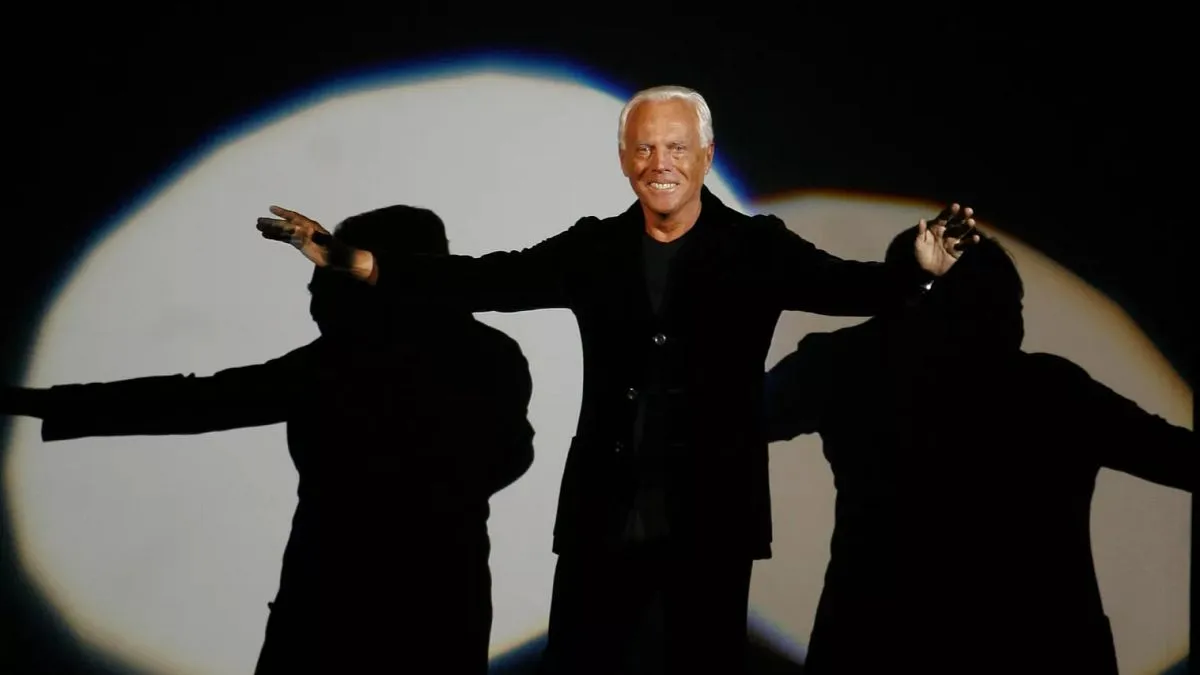
As final tributes are being paid to Giorgio Armani following his passing on Thursday, numerous terms are being used to honor his legacy. He is referred to as 'the king of fashion', 'the creator of Made in Italy in the world', and 'the icon of a style that will never fade'. Despite these grand titles, those closest to him, including collaborators and friends from his cherished locations like Versilia and the Sicilian island of Pantelleria, simply knew him as 'Mr. Giorgio'.
With a career that spanned an impressive 50 years, Armani was a man of few words, preferring to let his remarkable work speak for itself. He was often surrounded by a small circle of companions and family members, including his sister Rosanna. His fashion shows were renowned for their powerful messages, leaving an indelible mark not only in Italy but also around the globe.
One of the most recognizable faces in fashion, Naomi Campbell, fondly reminisced about her early days as a model with Armani, recalling her arrival in Milan in 1987 and the enormous Armani billboard she first saw at Linate airport. The brand, established in 1975 alongside Sergio Galeotti, was pivotal in shaping an era and a city, guiding Italy away from the turmoil of political violence and into a realm defined by taste and tradition.
Over the decades, the original location on Corso Venezia in Milan has expanded into a vast empire of boutiques, shops, and cultural spaces, encompassing various Armani brands, including clothing, perfumes, and home accessories. The company has beautifully chronicled this journey, resembling the glossy magazines that first showcased Armani's classic clothing catalogues.
Born in Piacenza as the third son of a clerk and a housewife who crafted hand-sewn garments, Armani eventually made Milan his home. He returned the city's affection by supporting the local basketball team, Olimpia, through his EA7 brand and even purchased the team in 2008. A grand celebration of his remarkable 50-year career is scheduled for September 28 at the Palazzo Brera, marking a fitting tribute to his legacy.
The outpouring of tributes from around the world underscores Armani's profound influence beyond just art, fashion, and sports. Donatella Versace reminisced about how her brother Gianni and Armani played pivotal roles in bringing Italian fashion to the global stage—one with vibrant colors and the other with essential elegance. Starting from his early days setting up shop windows at La Rinascente to studying medicine and working for stylist Nino Cerruti, Armani's journey was marked by a quest for order and essence in his collections.
In a 1975 interview with the renowned Milanese newspaper, Corriere della Sera, Armani famously stated, "I am neither a couturier nor a tailor, but I feel I am someone who creates a style, a stylist." This perspective helped him redefine the traditional suit, transforming it into a symbol of power for career women. He revolutionized men's jackets by eliminating their rigid insides to create softer silhouettes, which in turn influenced popular culture, particularly in Hollywood.
Armani's designs gained further recognition when Richard Gere donned his apparel in the iconic film American Gigolò (1980). In 1982, Time magazine featured him on its cover, solidifying the international acclaim of Made in Italy in the United States—a nation that was then at the center of global power and wealth. This recognition came just three years before the tragic loss of his partner, Galeotti, to AIDS, a shadow that loomed over a decade of great promise.
Giorgio Armani's influence extended well beyond the realm of fashion; he left an indelible imprint on the film industry as well. His designs graced numerous films, including The Untouchables (1987) and both of Christopher Nolan's Batman films, The Dark Knight and The Dark Knight Rises (2008 and 2012). Renowned actresses like Jodie Foster, Julia Roberts, and Nicole Kidman frequently chose his creations for significant red-carpet events and their weddings.
However, Armani's reign was not limited to the elites of Hollywood. His passion for sports was equally profound. He first made his mark in basketball by supporting his beloved Milan team and later extended his creative talents to design uniforms for various football clubs, including Piacenza, Chelsea, the English national team, and most recently, Serie A champions Napoli.
In conclusion, Giorgio Armani's contributions to fashion, film, and sports have solidified his status as a true icon. His legacy will continue to inspire future generations, ensuring that his style and vision will never fade.